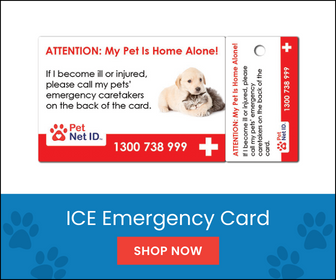
Discharge from Nose or Eyes in Dogs – Related Illnesses
If your pet dog is enduring with discharge from nose or eyes, there are several potential health problems which can trigger discharge from nose or eyes in dogs.
Discharge from Nose or Eyes in dogs can cause notable changes in your canine’s physical health as well as habits.
Recognizing the discharge from nose or eyes in dogs is the first measure in preserving your pet dog’s wellness.
We have itemized a few of the common sickness in canines when they are experiencing discharge from nose or eyes. Please click on the links of health problems below to get more information.
| Dog Illnesses & Health Conditions |
|---|
| Tick Born Disease in Dogs |

Recognising Symptoms Including Discharge from Nose or Eyes in Dogs
Monitor your dog’s day-to-day activity – Keep a notebook of when your dog relieves himself, when his/her symptoms occur, when he consumes, and so on.
This helps to establish a pattern to the signs and symptoms. It can also be a very beneficial tool for the vet to diagnose your pet dog’s health problem.
If your dog is mildly unwell (not eating the best for a day, troubled, throwing up one or two times, a round of diarrhea) you can very carefully observe your pet dog in the house and phone your veterinarian for recommendations.
Seek prompt veterinary attention with specific signs and symptoms – There are numerous serious symptoms that require prompt medical treatment. Do not wait on these signs and symptoms and also call your veterinarian immediately:
- Known intake of a hazardous substance.
- Unconsciousness.
- Unrelenting throwing up and also looseness of the bowels.
- Respiration problems.
- Excessive blood loss.
- Seizures that do not cease within one min.
- New or reoccuring signs and symptoms in a pet dog with a medical condition (diabetes, Addison’s disease, etc).
- Unable to urinate or not producing pee.
- Huge swellings around the face, eyes or throat.
- Broken bones.
Get suggestions from your vet on much less severe symptoms – Some symptoms of ailment in dogs may be uncomfortable for dog and may indicate health conditions that need to be dealt with. Call your vet to get advice on dealing with the following symptoms:
- The occasional vomiting as well as looseness of the bowels lasting much longer than 24 hours.
- Isolated seizure that can go on for no more than one minute.
- Sleepiness lasting a lot longer than eventually.
- High temperature.
- Swellings or bumps that all of a sudden appear or recent ones that grow.
- Not taking food for greater than one day.
- Hopping or acting uncomfortable.
- Problem defecating.
- Too much drinking.
- Swelling which surfaces gradually.
- Any other weird symptom or behaviour (shivering or sobbing).
Pay attention to your dog’s temperament – A dog parent can learn a good deal by watching the pet’s conduct including exactly how he or she is actually feeling. You’ll need to see to it his health and wellness is progressively getting better as well as responding to treatment. As an example, your family pet ought to start to wag his/her tail, pay attention to you and also stand up to welcome you.
If he cheers up and also starts requesting food, then it is good signal to suggest he/she is recovering.
However, if you notice your canine is coming to be less interactive or just lying still, she or he probably be getting worse and really need medical attention.
Watch your puppy’s breathing – It is better to observe the breathing pattern of your pet and it can reveal to you inform you a great deal about exactly how your dog feeling. If your family pet is in pain or dealing with some form sickness, he/she may breathe heavily or pant.
In many situations, coughing and heavy breathing are signs of a chest infection. You must additionally keep an eye on your pet’s gums if his breathing creates huge chest movements.
The gums in your dog’ mouth ought to be pink and healthy. If the periodontals look tinged blue or pale, speak to the veterinarian. Your beloved pet might not be getting sufficient oxygen and could be in respiratory distress.
You can also maintain an hourly report of your pet’s breathing. Generally your pet dog take around 20 to 30 breaths per min. If your pet’s breathing rate increases continuously, his or her health issue has deteriorated and you need to contact the vet.





